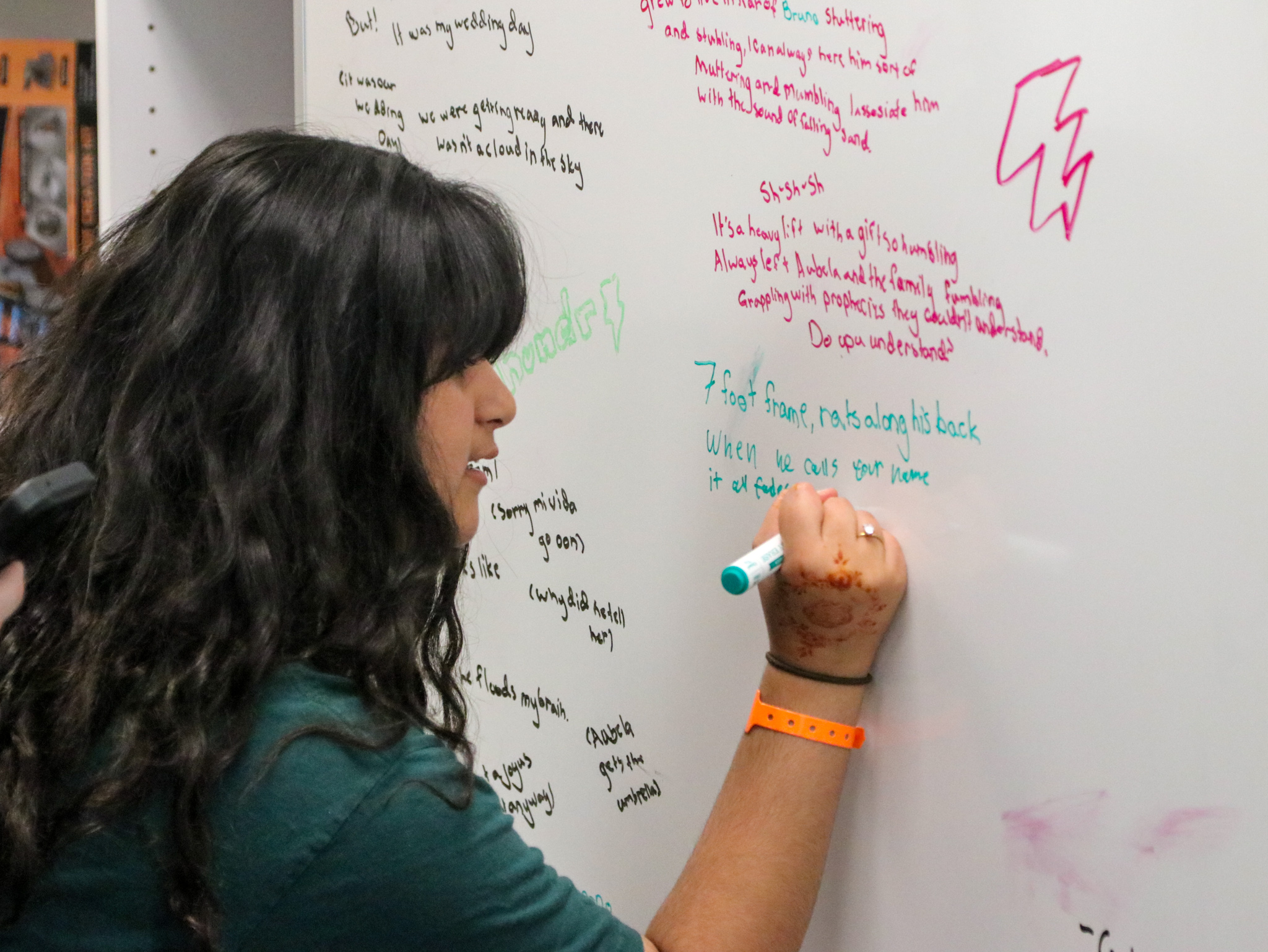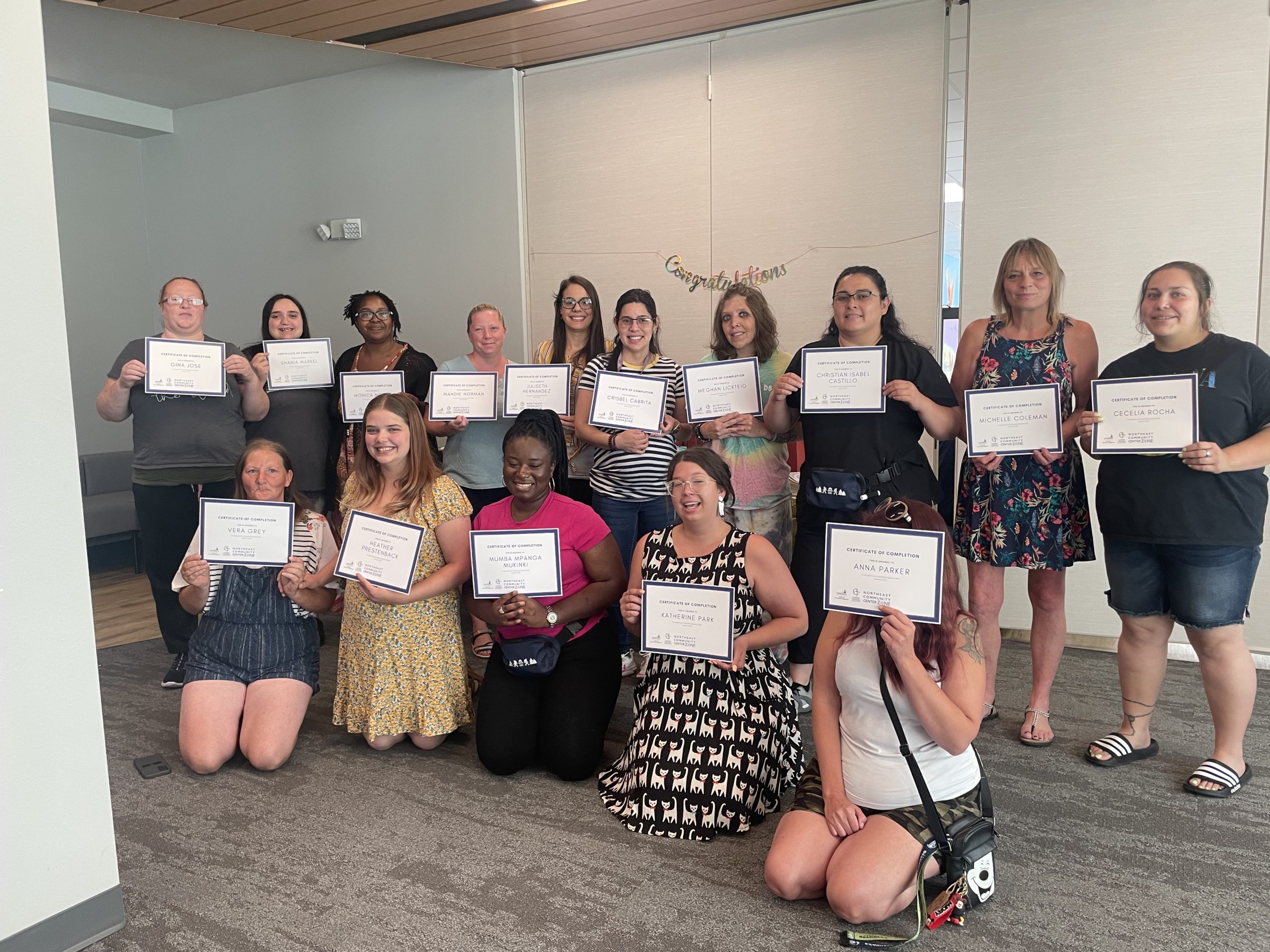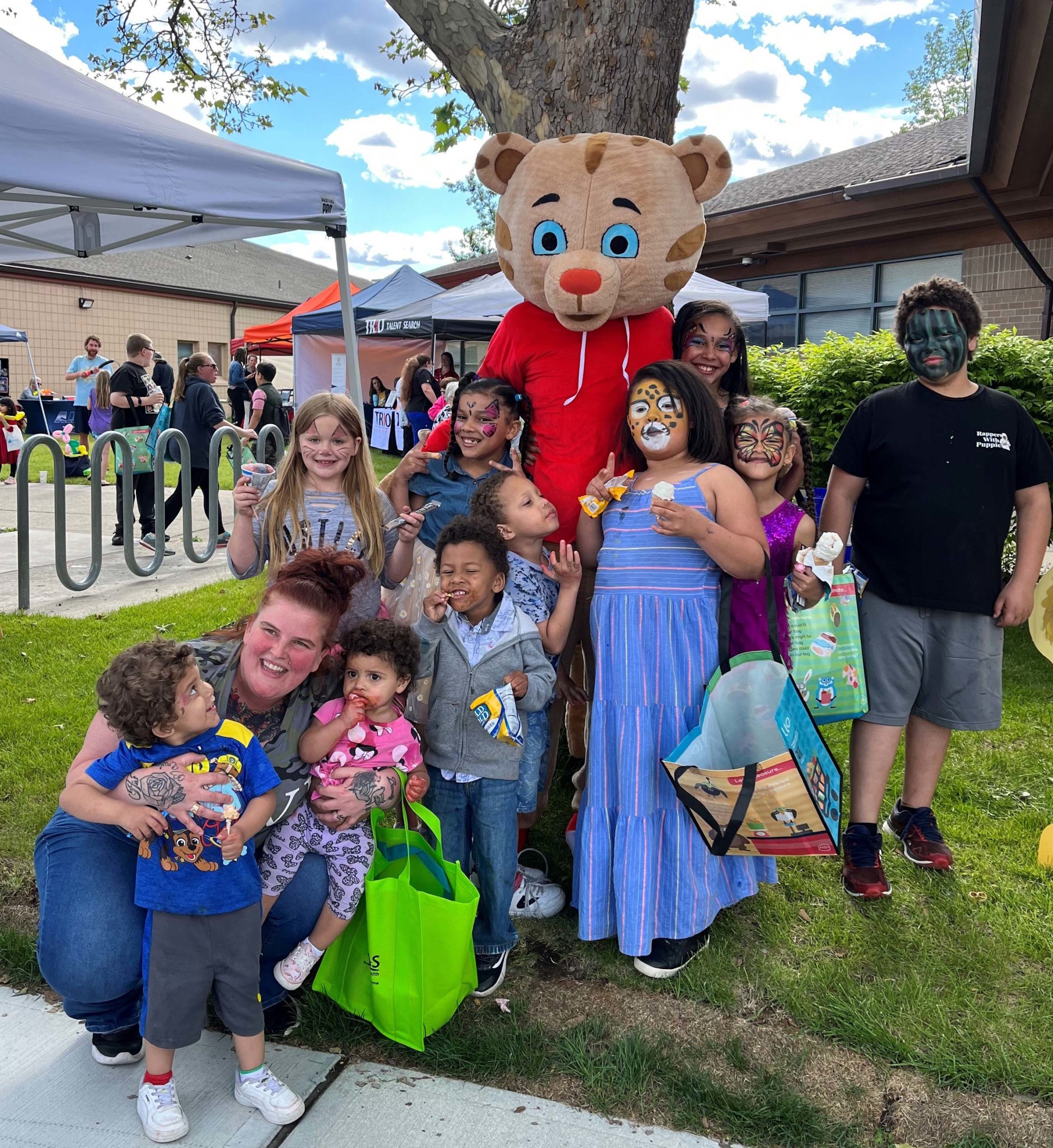How Does The ZONE Create Impact?
Together we are stronger. Collective impact is a model of community change that encourages multiple organizations and people to work together on common goals, share resources, build on current assets, and measure data to achieve greater impact.
The ZONE pulls from the strengths of our community to create a shared vision and take collective action. Since 2017, we have convened residents and partner organizations using a process called Results-Based Accountability to help identify priorities and strategies to move us toward the following end goals:
- All kids are safe and nurtured
- All families have what they need to thrive
- Families and residents are connected to school and neighborhood
If we are successful in meeting these goals, these indicators will change in our community:
- Increased number of children accessing learning opportunities outside of school
- Reduced levels of parental stress due to financial and other concerns
- Decreased anxiety and depression in children, youth, and adults
- Increased sense of belonging to school and neighborhood community
Focus Areas
Expanded Learning

Staff Liason
Barbara Gongyin: bgongyin@necommunitycenter.com
Community-Based Request
By the time they reach 6th grade, middle to upper middle class kids have likely spent 6,000 more hours learning than kids from lower socio-economic neighborhoods. Many Northeast Spokane students, especially kids of color, are behind their peers in reading, math and science. One of our key areas of collaboration and investment is to advance capacity in the expanded learning system that serves children, youth and families in our Northeast Spokane neighborhoods.
The Program
We use the term “Expanded Learning” to mean any learning that happens before/after school hours or during summer. This includes
-
After school and summer programs in 8 Northeast schools.
-
Partnering with local community groups to provide after school and summer programming in community spaces.
Goals
-
To improve quality and increase access to Pre-K through high school learning activities
-
To shrink the achievement gap—ensuring kids in Northeast Spokane graduate on-time and are career and/or college ready.
By The Numbers
Between 2018 and 2022, ZONE Programming served 4,908 students in Northeast Spokane.
Housing Stability

Staff Liasons
Amanda Randall: arandall@necommunitycenter.com
Lavonnie Mcmanus: lmcmanus@necommunitycenter.com
Community-Based Request
Increase housing stability and housing navigation supports for Northeast Households. Advocate for three and four bedroom units for larger families.
By The Numbers
-
Over half of families surveyed report they have doubled up with other households to afford staying housed.
-
77% of families report they are struggling to pay rent.
-
55% of respondents indicate the primary cause of not affording rent is their pay is not high enough.
The Program
In partnership with HUD, the City of Spokane, and Better Health Together, we have increased our housing supports to include a housing diversion program aimed at stabilizing currently housed families and providing short-term financial resources and case management, including employment supports and financial coaching to support self-sufficiency. This complements our ongoing housing voucher program in partnership with the Spokane Housing Authority.
Goal
Reduce housing insecurity of families with school-age children by providing tools and resources for ongoing stability once diversion case management and short-term financial supports have ceased. Include increased knowledge of other housing, food, transportation, mental and physical health, childcare, financial, educational and employment resources.
Equitable Employment Pathways

Staff Liasons
Housing
- Amanda Randall: arandall@necommunitycenter.com
- Lavonnie Mcmanus: lmcmanus@necommunitycenter.com
Essential Skills
- Tyana Kelley: tkelley@necommunitycenter.com
Community-Based Request
By reducing stress of parents and caregivers, we improve the safety and well-being of the entire household. Over 52% of households live in poverty in Northeast Spokane. Access to higher wage employment is critical to families becoming more financially stable, but training programs must come equipped to equitably support the holistic needs of families, such as childcare, transportation, skills-building and on-the-job experience.
By The Numbers
A 2017 Spokane Regional Health District Quality of Life survey indicated that 78% of adults in The ZONE feel stress related to finances compared to 59% of adults in Spokane County.
The Programs
- The Employment Center offers assistance with employment navigation, financial coaching, and benefits cliff assistance.
- A 6-week Essential Skills course for women, focusing on improving computer skills, interviewing, internship and employment options, continuing education options, and more. Courses are free, and childcare is provided.
Increasing Social Connections & Emotional Well-Being

Staff Liasons
Tyana Kelley: tkelley@necommunitycenter.com
Jene Ray: jray@necommunitycenter.com
Community-Based Request
When we know we are not alone, we cope more effectively in difficult times, which decreases the physical and mental impact of traumatic situations. When families feel more connected to their children’s school, they are more likely to engage in school-based activities and children are more likely to do better in school and feel more confident. When residents know more about their neighbors, our community is safer and more resilient.
The Program
-
Embedding Family-School Resource Coordinators in 11 Northeast Spokane schools.
- Holding Community Resource Fairs during the Hillyard Farmer's Market (approximately once per month) that connects residents with local resources and fresh food.
- Email newsletters & text messages to local families with events, resources, and ways to get involved in their community from trusted partners.
- Opening our campus Behavioral Health Clinic with MultiCare.
Goals
We aim to increase sense of belonging, improve safety in Northeast Spokane, and increase engagement of families in schools.
By The Numbers
- Hosted 5 Community Resource Fairs for families during the Farmer’s Market, and provided dinner to a total of 1,500 people in 2023.
-
Hosted 3 Community Resource Fairs for families during the Farmer’s Market, and provided dinner to a total of 825 people in 2022.
-
According to our 2022 Parent Survey, after school programming helped 91% of children enrolled connect to other students and adults.
-
66% of participants said they had an increased sense of belonging after participating in peer groups.
How We Measure Impact
Collecting data and data-sharing can be powerful tools for communities to create change. We believe residents should have the power to decide how data is collected and shared and we are developing this capacity in our community. We collect data in many ways, from listening to resident stories, surveying families, monitoring program participation, and tracking changes in quality of life indicators at the individual, school/site, and population levels. Please contact us if you would like to learn more.
